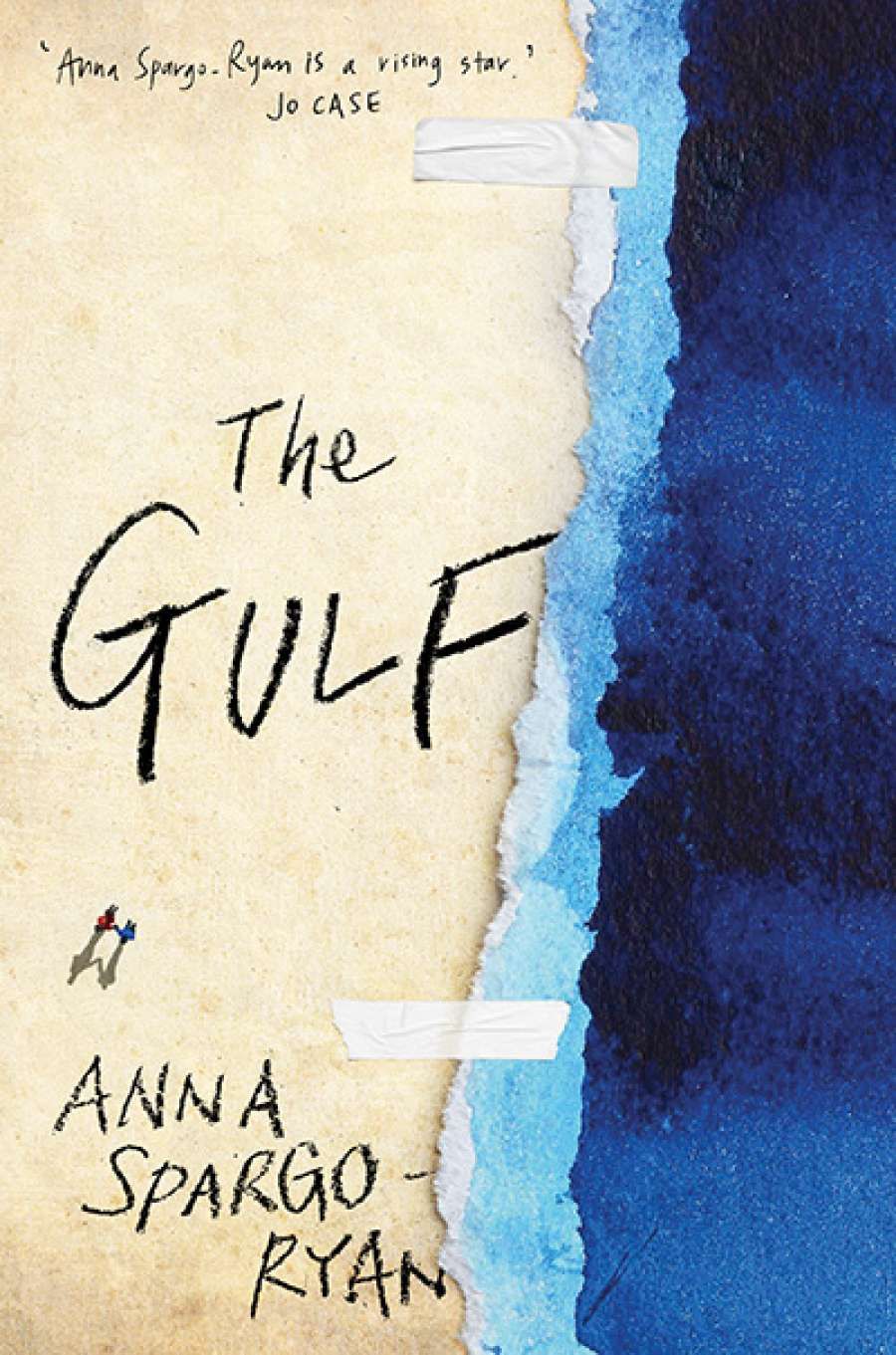
- Free Article: No
- Contents Category: Fiction
- Custom Article Title: Josephine Taylor reviews 'The Gulf' by Anna Spargo-Ryan
- Review Article: Yes
- Online Only: No
- Book 1 Title: The Gulf
- Book 1 Biblio: Picador, $29.99 pb, 304 pp, 9781743537176
With character and setting explicit, and Jason’s ascendancy established, the interest lies in the escalating tension, in the siblings’ response to a hostile world, and in questions central, also, to Spargo-Ryan’s first novel, The Paper House (2016): what is mothering? and what is a family? As Skye tells her new friend, the perpetually ‘warm’ Raf, ‘I miss getting up in the morning and knowing where I fit in the world.’ Spargo-Ryan also uses a similar structural and narrative device in both novels: interweaving the familial past with the present. The strategy is not as successful here, perhaps because Skye’s past with her father and Nonno only figures in small vignettes that serve less to illuminate the present than to provide alternative possibilities of love and care, loss, or mystery.
What the novel might lose in moral complexity, it gains in voice; here, Spargo-Ryan excels. It is Skye’s perspective through which we view this world, her wry and savvy cynicism that generates humour, her loving, armoured heart that creates poignancy. For the sake of the plot, Skye cannot understand what she might reasonably be expected to do; Spargo-Ryan deals with this by making her a loner, and allowing her only fleeting attentiveness to ‘clues’ – in selective naïveté, or a form of denial. Yet, while only on the cusp of adulthood herself, Skye is forced to be the parent, to monitor her highly intelligent and anxious brother: ‘His voice ran frantic and urgent, the way it always did.’ As the ‘gulf’ in the family widens, the scenes in which Skye and Ben function as a caring unit become ever more affecting:
He looked over at me. ‘Are you sad?’
‘Nah,’ I said. ‘Not sad.’
He came and sat next to me. His feet barely touched the floor. ‘You look pretty,’ he said.
‘Thanks, mate.’
Skye is very different from the narrator in The Paper House, her personality sassy and pragmatic, her actions in the world more dynamic – even combative. Fittingly, then, the language is less sumptuous here, evoking a larger, sparser landscape: ‘Even from the bridge, I could hear the little girl’s laughter. Like cymbals. It came sprinting down the road and went under the bridge and out into the wheat fields.’ Through the symbol of the tortoise, an intricate sense of mothering, family and home is built: the Galápagos tortoise is the figurative and pictorial motif of the novel, Ben’s tortoise its narrative expression. Trains act as a complex metaphor of violence and possible responses – of harm towards self or others; of not caring and not taking care; of possibilities and beginnings.
 Anna Spargo-Ryan
Anna Spargo-Ryan
The Gulf brims with topical issues, reflecting the multicultural and multifarious reality of this country. Realism is also effected through dialogue, especially the vernacular, and the clichéd way in which inexcusable behaviour is accounted for: ‘I should have known better than to ask questions when he was already tired.’ Acts of violence are presented with a dispassionate realism that makes them all the more disturbing; Jason’s dog, Murray, is a potent example of what comes of violence and neglect. However, while realism is not sacrificed in the denouement, there is some cause for optimism, and believable maturation in the narrator.
The Gulf is a timely reminder of the protean forms of domestic violence and its devastating effect on family and home. Spargo-Ryan continues to bring heart and hope to the difficult subjects she writes about: mental illness, grief, suicide. Her beautifully crafted blogs, consummate essays, and sensitively realised fictional worlds augur a robust future.


Comments powered by CComment